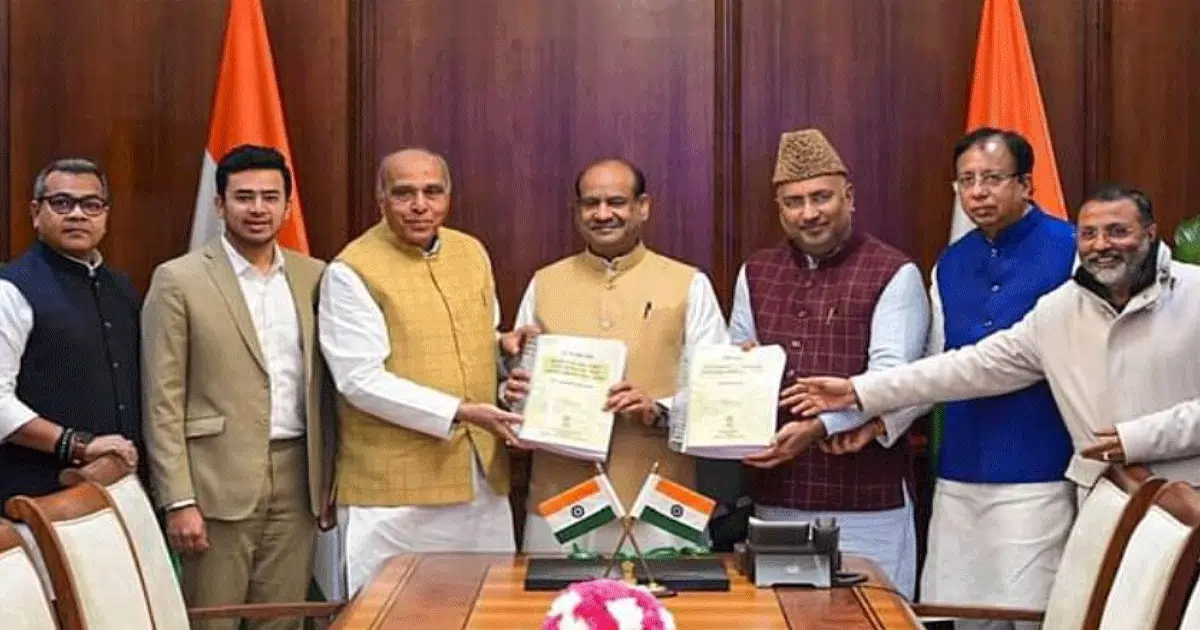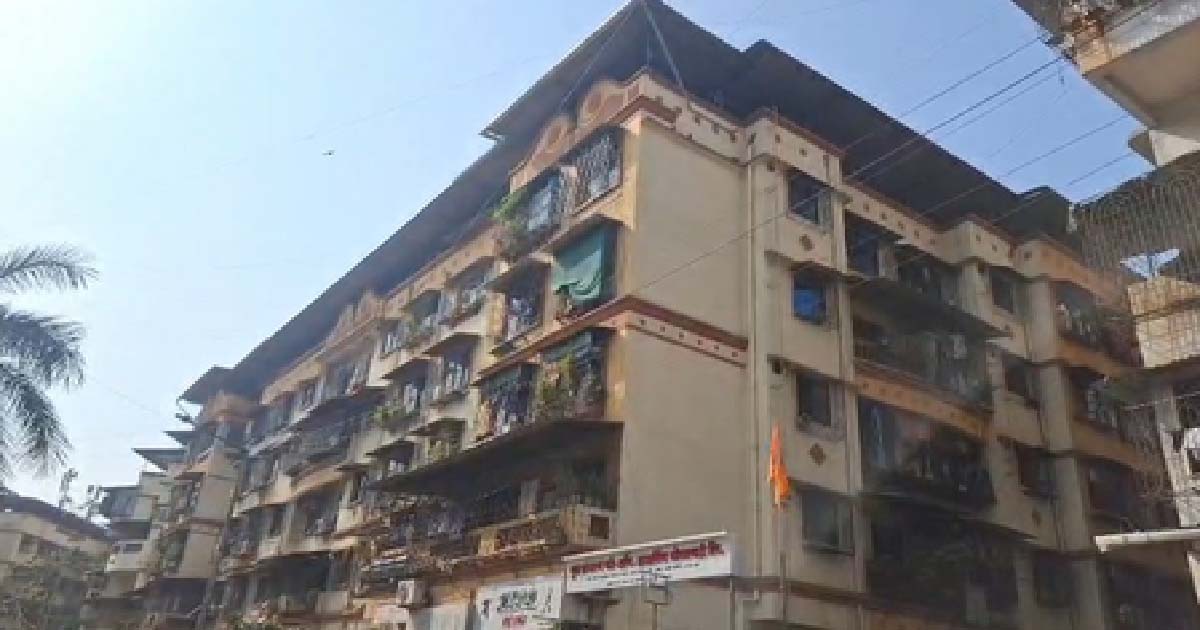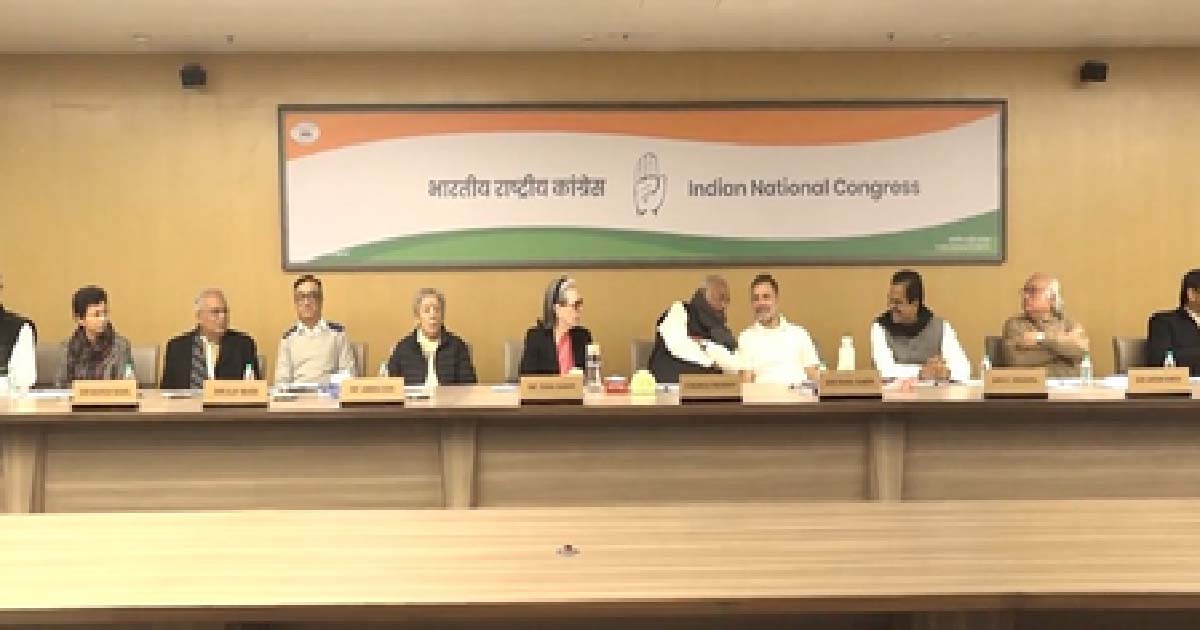National News
Waqf Bill Among 19 Legislations On Government’s Agenda For Parliament’s Budget Session; Opposition Parties Highlight Their Issues

New Delhi: The budget session of Parliament will commence on Friday with the government outlining its legislative agenda including the Waqf (Amendment) Bill, 2024 and the opposition parties pressing on issues of their concern including price rise and unemployment.
The budget session will commence with President Droupadi Murmu addressing joint sitting of the two Houses. The Economic Survey will also be tabled on Friday ahead of the presentation of the Union Budget on Saturday.
Congress Leader Pramod Tiwari Accuses Govt Of Economic Failure
After the all-party meeting convened by the government, Congress leader Pramod Tiwari accused the government of failing on the economic front.
“Congress expressed concern that the BJP government is systematically killing constitutional values and traditions…We expressed concern over the manner in which the incident occurred in the Kumbh Mela. We are seeing that now the date of independence of the country is also being changed by the Chief of the RSS. Not only this, we also expressed concern over the insult of Babasaheb Ambedkar by Home Minister Amit Shah… Gandhi ji was assassinated on this day but this government is killing him every day and promoting the principles of Godse,” he alleged.
“The Waqf Board meeting was held as if all the decisions were already written… The committee that has been formed for One Nation One Election deliberately has 2 fewer members of the opposition and 2 more members of the ruling party, it makes it seem that all the preparations are already done. We also discussed how the government has completely failed on the economic front… The government is not concerned about Manipur,” he added.
BJD MP Sasmit Patra said the party will press for special category status for Odisha.
“There were very critical issues that were raised by the BJD today in the all-party meeting right before the Budget session. Party President Naveen Patnaik advised and directed the BJD parliamentary party to strongly take up the issue of demanding special category status for the state of Odisha. This has been a long-standing demand. In 2014, the BJP in its election manifesto had specified on its first page of the manifesto that if they came to power, they would ensure special category status for the state of Odisha,” he said.
“They say they are a double-engine government. They are in Delhi. They are in Odisha. So, therefore, why is the special category status not coming in? So BJD will very strongly demand special category status for the state of Odisha,” he added.
The all-party meeting was chaired by Defence Minister Rajnath Singh and attended by 52 leaders from 36 political parties including union ministers.
Parliamentary Affairs Minister Kiren Rijiju said that tentatively 16 items of legislative business and three items of financial business have been identified for being taken up during this session.
The Minister of Parliamentary Affairs also stated that the Government is prepared and ready to discuss any other important issue on the floor of the Houses as per rules of both Houses.
The legislative agenda of the government includes Banking Laws (Amendment) Bill, 2024, the Railways (Amendment) Bill, 2024, the Disaster Management (Amendment) Bill, 2024, the Oilfields (Regulation and Development) Amendment Bill, 2024, the Boilers Bill, 2024, the Waqf (Amendment) Bill, 2024, the Coastal Shipping Bill, 2024, the Merchant Shipping Bill, 2024 and the Finance Bill, 2025
The two Houses will take up discussion and voting on Demands for Grants for the year 2025-26 and introduction, consideration and passing of the related Appropriation Bill.
There will be discussion and voting on Second and Final Batch of Supplementary Demands for Grants for the year 2024-25 and introduction, consideration and passing/return of the related appropriation bill.
There will also be discussion and voting on Demands for Excess Grants for the year 2021-22 and introduction, consideration and passing/return of the related appropriation bill.
Rijiju said with the Rajya Sabha Chairman and Lok Sabha Speaker, the Business Advisory Committees will decide the duration of discussions on the President’s address and the budget discussion.
He said Parliament will not function on February 5 due to Delhi polls.
Congress Leader Jairam Ramesh And Opposition Members Strongly Protest
Congress leader Jairam Ramesh said that at the all-party meeting, the opposition members expressed their strong protest of the way Joint Parliamentary Committee on Waqf Bill functioned.
“In the traditional pre-session All-Party meeting this morning, all Opposition leaders have expressed their strongest protest on how the JPC on the Waqf Amendment Bill was made to function. It has made a complete mockery of all parliamentary traditions and practices. Such committees used to be a force to be reckoned with – now they have been reduced to be a farce to be reckoned with,” Jairam Ramesh said in a post on X.
“Since the establishment of the Standing Committees in the mid-1990s, Parliament has followed a One MP, One Standing Committee rule. Now there are 26 BJP MPs who are members of 2 Standing Committees. This shows how the Duo are seeking to control the Standing Committees,” he added.
The first part of budget session will continue till February 13 and the two Houses will again meet on March 10 after recess with the session concluding on April 4.
National News
BMC Elections 2026 | ‘Fight Election, Win Majority’: Sanjay Raut’s Sharp Response To Waris Pathan’s, ‘Why Can’t Khan, Pathan, Shaikh, Qureshi, Syed Become Mumbai Mayor?’ Remark

Mumbai: Shiv Sena UBT MP Sanjay Raut on Saturday, December 27, has strongly replied to to remarks made by AIMIM’s national spokesperson Waris Pathan, over who can become the mayor of Mumbai. Pathan had questioned, “Why can’t a Khan, Pathan, Sheikh, Qureshi, Syed become the Mumbai mayor?”
Responding to Pathan’s remarks, Raut said that elections should be fought democratically and decided by numbers. “Fight the election, win a majority and bring in 110 seats,” the Sena UBT MP said. He further added, “We have always maintained that Mumbai’s mayor should be a Marathi-speaking person”, adding that if Waris considers himself a Mumbaikar, he should demonstrate public support through the electoral process.
While speaking to news agency Media, Waris Pathan spoke on the upcoming Municipal Corporation Elections, where he questioned, saying, “Why can’t a Khan, Pathan, Sheikh, Qureshi, Syed become the mayor?”
He claimed that one day a Hijab-wearing woman will also become a mayor. He added, “Muslims have been leaders in the nation already… They (Maharashtra government) have no response to the lack of development and farmers’ suicide… They simply want to spread polarisation…”
NCP leader Zeeshan Siddique said that anyone can be sent to the position of Mayor, while their caste or religion should not matter. He expressed belief that the city needs a person who believes in getting things done.
Further adding, he said, “The mayoral chair should go to someone who has faith in work… If you look around Mumbai, the condition of the city’s roads and infrastructure is poor. Even though BMC receives funds worth thousands of crores, the work does not get done.”
The elections for 227 seats of BMC will be held on January 15, while the counting of votes will be held on January 16. The last polls for the 227 seats were held in February 2017. The BMC elections become crucial as the Mahayuti secured a landslide majority in the 288 municipal councils and nagar panchayats, winning 207 president posts in the local bodies. The Opposition Maha Vikas Aghadi could come up with a collective tally of 44.
In the BMC polls, the total number of registered voters stands at 1,03,44,315 across all wards, of which 55,16,707 are male voters, 48,26,509 are female voters, while 1,077 voters are listed under the ‘other’ category.
Crime
Mother strangles 6-year-old to death in Navi Mumbai for not speaking Marathi

Navi Mumbai, Dec 27: In a shocking and disturbing incident from Navi Mumbai, a woman allegedly murdered her six-year-old daughter because the child could not speak Marathi, sending shockwaves across the city.
The police have arrested the mother in connection with the case after attempts were made to pass off the child’s death as a heart attack.
The incident came to light after the police grew suspicious of the circumstances surrounding the child’s death and ordered a post-mortem examination, which revealed that the girl had died due to asphyxiation.
Following intensive questioning, the truth behind the incident was uncovered.
The heart-wrenching crime was reported from the Kalamboli suburb of Navi Mumbai. In Gurusankalp Housing Society in Sector-1, Kalamboli, the 30-year-old woman allegedly strangled her own six-year-old daughter to death.
The Kalamboli police have arrested the woman and initiated further investigation into the matter.
According to information provided by the police, the family consisted of an IT engineer husband and his wife, who holds a B.Sc. degree. The couple got married in 2017 and welcomed their daughter in 2019.
However, from a very young age, the child reportedly had difficulty speaking and mostly communicated in Hindi instead of Marathi.
This reportedly became a recurring source of anger for the mother. During the investigation, it emerged that she often expressed resentment about the child’s speech, repeatedly telling her husband, “I don’t want such a child; she doesn’t speak properly.”
The husband, police said, had tried to reason with her on several occasions.
On the night of December 23, the woman allegedly decided to kill the child. Coincidentally, the grandmother had visited the house that day, but could not meet the girl.
Later, when the husband returned home and found the child unresponsive, the family rushed her to the hospital.
At the hospital, an initial claim was made that the child had suffered a heart attack. However, Senior Police Inspector Rajendra Kote of Kalamboli Police Station found the circumstances surrounding the death suspicious and ordered a post-mortem examination.
The preliminary medical report indicated obstruction of the airway, pointing towards asphyxiation.
Following this revelation, the police subjected the parents to sustained questioning. After nearly six hours of interrogation, the mother allegedly confessed to strangling her daughter.
She has since been arrested in connection with the crime.
It has also come to light during the investigation that the woman was undergoing treatment with a psychiatrist.
The police are continuing their probe to ascertain all aspects related to the case and the mental condition of the accused.
National News
CWC meeting underway at AICC headquarters; Siddaramaiah, Shashi Tharoor in attendance

New Delhi, Dec 27: Congress National President Mallikarjun Kharge on Saturday chaired a meeting of the Congress Working Committee (CWC) at the All India Congress Committee (AICC) headquarters at Indira Bhawan in New Delhi.
The high-level meeting, which is currently underway, is being attended by Lok Sabha Leader of Opposition Rahul Gandhi, Congress Parliamentary Party Chairperson Sonia Gandhi, and several senior leaders of the party.
Congress General Secretary K.C. Venugopal, Telangana Chief Minister Revanth Reddy, Karnataka Chief Minister Siddaramaiah, senior Congress leader Harish Rawat, Himachal Pradesh Chief Minister Sukhvinder Singh Sukhu, former MP Salman Khurshid, MPs Abhishek Manu Singhvi and Rajeev Shukla are among the prominent leaders present at the deliberations.
Congress MP Shashi Tharoor was also seen attending the meeting, despite his recent remarks that reportedly did not align well with the party’s official stance.
Congress leader Harish Rawat called the meeting “very important”. Speaking to the reporters, he said, “One cannot even imagine that in independent India, Mahatma Gandhi’s name could be removed from the MGNREGA. This is a completely unacceptable decision.”
Congress leader M. Veerappa Moily, said, “Very important issues concerning the nation will be discussed.”
According to sources, the CWC is expected to deliberate on the party’s strategy for launching a major movement against the VB G-RAM-G Act.
Discussions on the National Herald case, issues concerning the Aravalli region, and other key political matters are also likely to feature prominently during the meeting.
Meanwhile, amid the crucial CWC deliberations, a group of around a dozen protesters gathered outside the AICC headquarters in Delhi, demanding that Karnataka’s current Home Minister G. Parameshwara be appointed as the next Chief Minister of the state.
The protesters raised slogans and displayed posters in an attempt to draw the attention of the Congress high command.
The posters called for the elevation of Dalit leadership, with protesters asserting that the time had come to bring a Dalit Chief Minister to the forefront in Karnataka.
-

 Crime3 years ago
Crime3 years agoClass 10 student jumps to death in Jaipur
-

 Maharashtra1 year ago
Maharashtra1 year agoMumbai Local Train Update: Central Railway’s New Timetable Comes Into Effect; Check Full List Of Revised Timings & Stations
-

 Maharashtra1 year ago
Maharashtra1 year agoMumbai To Go Toll-Free Tonight! Maharashtra Govt Announces Complete Toll Waiver For Light Motor Vehicles At All 5 Entry Points Of City
-

 Maharashtra1 year ago
Maharashtra1 year agoFalse photo of Imtiaz Jaleel’s rally, exposing the fooling conspiracy
-

 National News1 year ago
National News1 year agoMinistry of Railways rolls out Special Drive 4.0 with focus on digitisation, cleanliness, inclusiveness and grievance redressal
-

 Maharashtra1 year ago
Maharashtra1 year agoMaharashtra Elections 2024: Mumbai Metro & BEST Services Extended Till Midnight On Voting Day
-

 National News1 year ago
National News1 year agoJ&K: 4 Jawans Killed, 28 Injured After Bus Carrying BSF Personnel For Poll Duty Falls Into Gorge In Budgam; Terrifying Visuals Surface
-

 Crime1 year ago
Crime1 year agoBaba Siddique Murder: Mumbai Police Unable To Get Lawrence Bishnoi Custody Due To Home Ministry Order, Says Report












